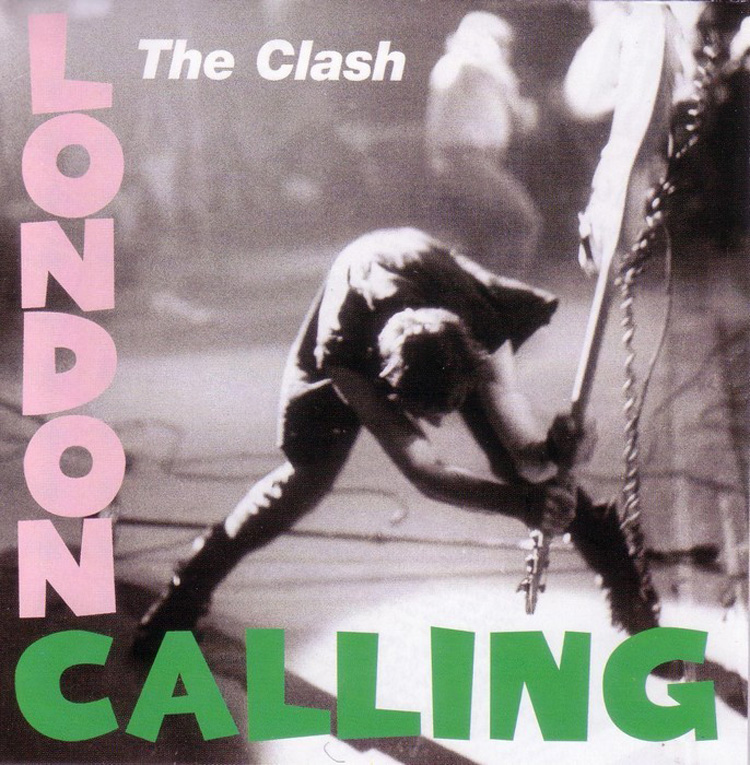Music
Second Listen: “London Calling”

As part of Heave’s wrap-up this week, the following is the final installment of Second Listen.

So, I guess this is it. So long. Farewell. Auf wiedersehen. Goodbye. But, before you start to miss me too much, I want to leave you with a little something. A token of my appreciation for those of you who suffered through week after week of my insufferable bitching and moaning over albums often released before my birth. And what’s the gift? Another review of an album that was released before my birth. Minus the bitching and moaning. Well, almost all of the bitching and moaning.
On July 17, 2013, I reviewed the worst Clash album of all time for your reading pleasure: Cut the Crap. Even after decades of shifting fads, evolving genres, and a necessary reimagining of the entire music industry (thanks, Napster), Cut the Crap is still a cancerous mole on the face of an almost entirely perfect Clash discography. That might be a little dramatic, but the album still sucks. Six years prior to the release of Cut the Crap, The Clash revealed the future of rock ‘n roll to the world through the eclectic perfection that is London Calling.
If you don’t know at least a little bit about the history of the Clash by now, you clearly haven’t been reading my other reviews. No worries, I don’t read them either. But, in an attempt to avoid boring you for once, I’ll skip the historical pleasantries and jump right into the necessities. Released in 1979 (1980 in the U.S.), London Calling was The Clash’s third album and featured the non-original but still widely recognized line-up including: Joe Strummer, Mick Jones, Paul Simonon, and Topper Headon. Their first two releases (The Clash and Give ‘Em Enough Rope) set a punk precedent that foreshadowed London Calling. What the fans received wasn’t punk, though. It was something completely different altogether. Kind of.
The Clash have always had their respective influences. Mick had reggae. Joe had Mick. Paul had New York hip-hop. And Topper had a penchant for jazz and the needle. Never was this hodge-podge of styles more realized and complete than on London Calling. The Clash allowed musical freedom and experimentation to dictate their sound. In the same vein as David Bowie and bands like Ween, London Calling is a musical chameleon.
Reggae. Punk. Ska. Jazz. Blues. Rockabilly. Rock n’ roll. They’re all represented on London Calling. Don’t forget about the expected covers that seamlessly work their way into every Clash album (yeah, “I Fought the Law,” and “Police and Thieves” are both covers). Punk wasn’t lost within the seemingly genre-confused tracks of London Calling, it was rediscovered. The Clash took a dying movement and shoved a complex foot up its ass. That foot not only kicked punk into the mainstream, but it also kept the genre on life support until December 22, 2002.
There’s still punk here, even if the instruments beg to differ. Strummer’s lyrical work covers almost every expected topic on a punk album: racism (“The Right Profile”), war (“Spanish Bombs”), consumerism (“Lost in the Supermarket”), unemployment (“London Calling”), anarchy (“Clampdown”), and an inability to accept the responsibilities of adulthood (“Death or Glory”). Also, the double album exploitation of the loopholes found in their record contract is a precursor to publicity stunts like the Death Grips dick pic album released without contractual consent. Punk is as punk does.
But, it isn’t all foggy London dreams and black and white rainbows. NME called out the four maturing punks for their inability to write credible love songs. In an attempt to prove NME wrong, The Clash released “Revolution Rock” (and “Train in Vain” as a second thought). The problem with “Revolution Rock” is that it proves NME right. If there’s a “bad” song on London Calling, this is it. The mix of reggae and rock just doesn’t work as well here. There’s an obvious forced and disjointed feeling that doesn’t resonate with the rest of the album. This doesn’t mean that “Revolution Rock” is a bad song. It just means that I’m reaching for negative criticism.
Was London Calling ever given a negative review? Probably. Let’s be real, reviews are opinions and opinions are subjective. Objectivity is a myth. Hell, I spent almost an entire article building a pedestal for two jamokes from Queens who pissed people off for a living. That’s the point of all this, isn’t it? A chance to reminisce and maybe catch something we never have before. Reexamine our own perceptions. Second Listen isn’t about proving anyone wrong about their initial opinions. It also isn’t about pouring salt into the wounds of an album that should’ve died years ago. Nah. Albums deserve a second chance, an opportunity to teach a lesson of what works and what doesn’t. To prove that our immediate reactions are not always sufficiently supported (I’m looking at you, Rolling Stone, and your Zeppelin I review).
Think of it in terms of your life choices. Not everything we do is a London Calling. But not everything we do is a Cut the Crap, either. Whether we like it or not, these albums, these choices, are a part of our lives and we need to find a way to treat them as tools to help us determine the next step in our personal stories, our next album. And, you know, any other sappy shit you can come up with. It’s been fun.